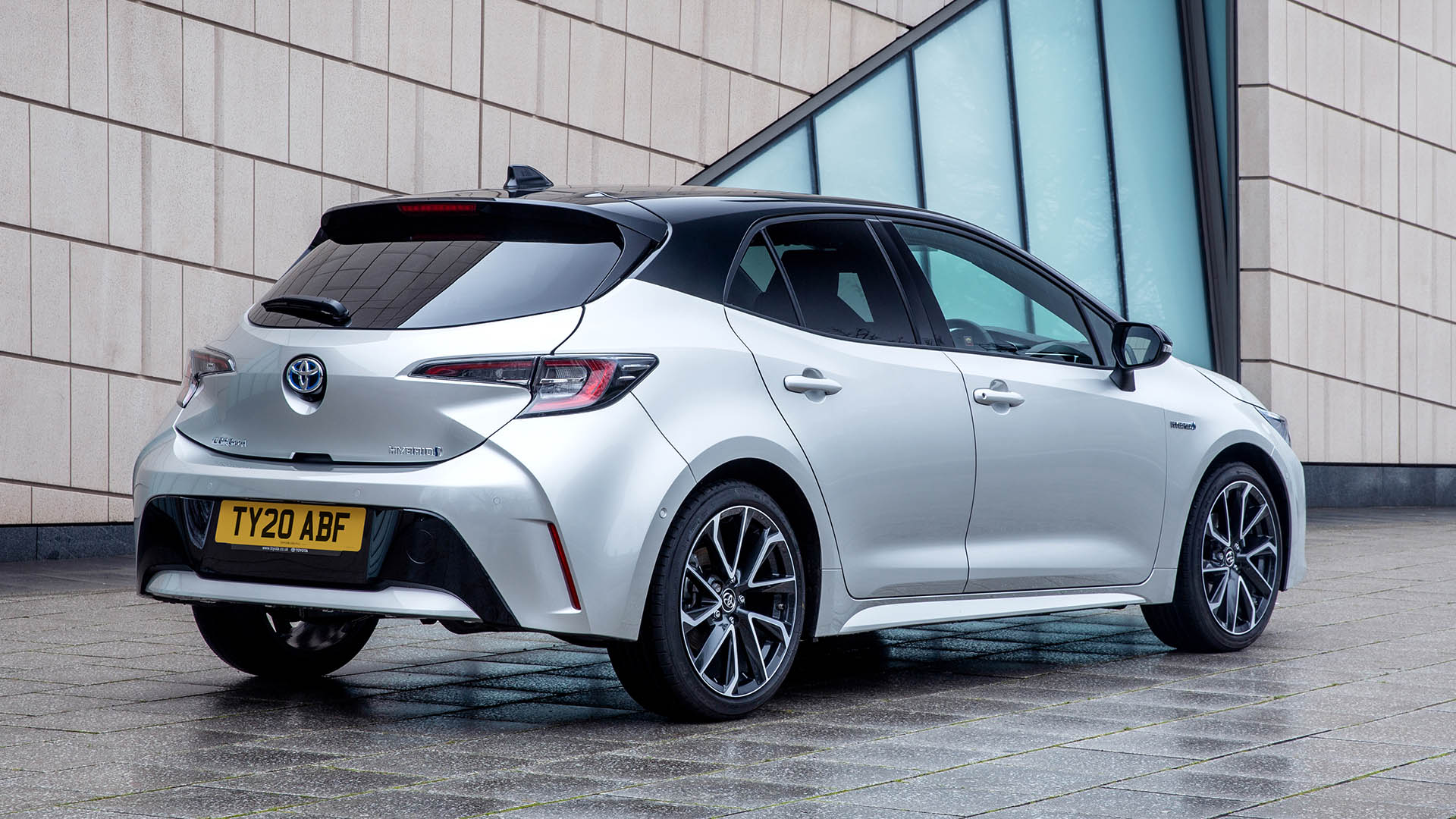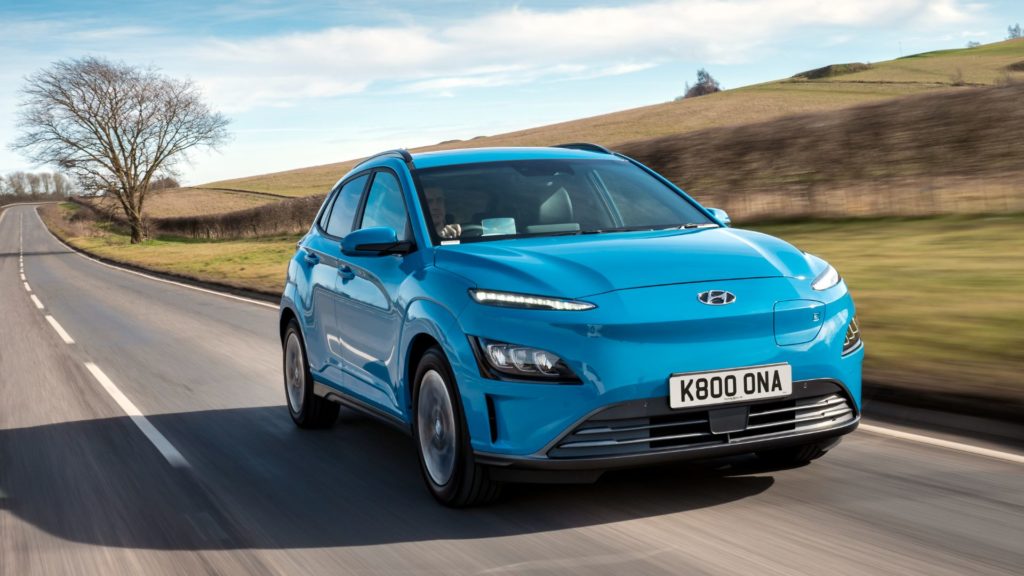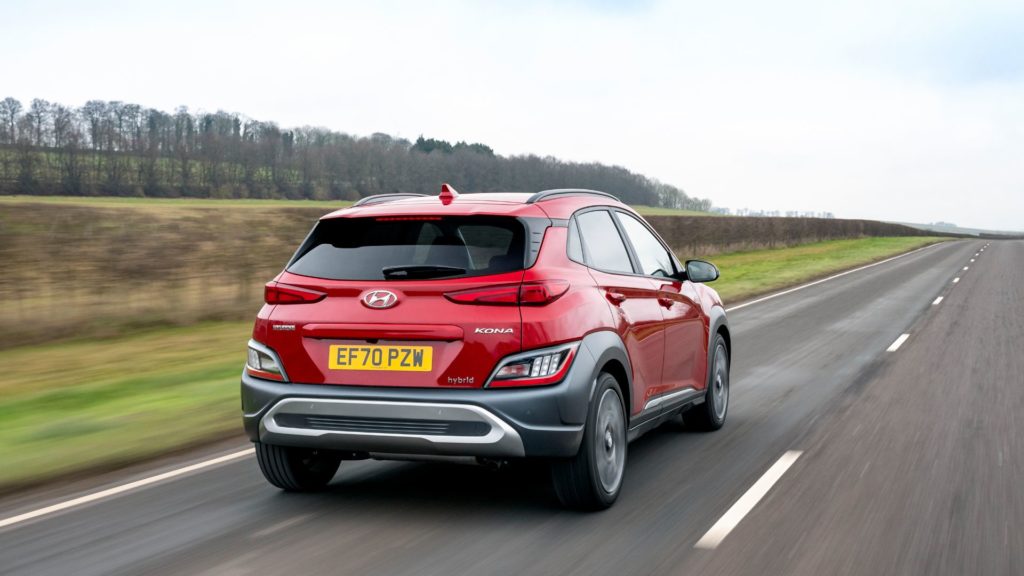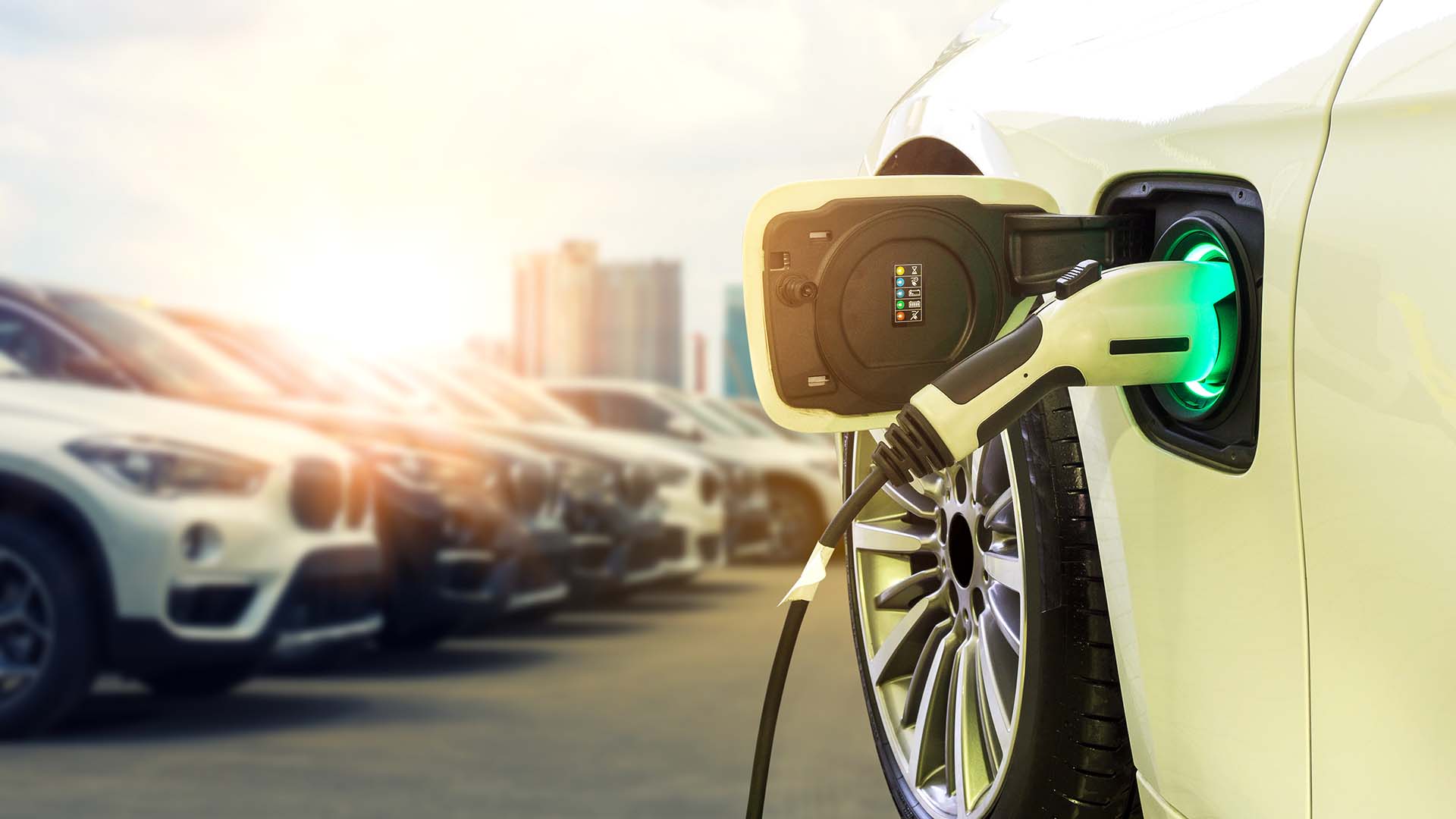This article will focus on the fundamental differences between a hybrid and an electric car, along with the pros and cons of each.
Cutting to the chase, an electric car offers zero tailpipe emissions, while a hybrid uses a petrol or diesel engine for its primary means of propulsion.
Just to confuse matters, there are two types of hybrid: standard or plug-in hybrid. A standard hybrid might also be referred to as a ‘self-charging’ hybrid, while a plug-in may be called a ‘PHEV’ (Plug-in Hybrid Electric Vehicle)
The main difference between the two is that in a hybrid, the electric motor is there to increase efficiency, improve fuel economy and provide a small amount of electric range. We’re talking really small, though – typically a mile or so.
As the name suggests, a plug-in hybrid can be plugged in to provide anything between 30 and 70 miles of electric range. Once this range has been used up, the petrol or diesel engine takes over.

We like to think of a standard hybrid as a worthy alternative to a diesel car, with the likes of Toyota and Lexus offering some excellent options here.
Meanwhile, a plug-in hybrid is a good halfway-house between a conventional car and an electric vehicle. Depending on the length of your commute or school run, it’s quite possible to complete your daily journeys solely in electric mode if you charge up regularly at home. Then you can save the petrol or diesel engine for longer weekend trips.
However, you must recharge the batteries in order for a plug-in hybrid to make sense. If you don’t, you’re simply lugging around a heavy battery pack, which will have a detrimental impact on fuel economy.
Some Korea’s advide

Let’s consider the Hyundai Kona (pictured above in Kona Electric guise). It’s offered with three different powertrains: petrol, standard (non-plug-in) hybrid and electric, which are priced as below:
- Kona petrol: From £21,625
- Kona Hybrid: £24,315
- Kona Electric: £30,450
The 120hp 1.0-litre version is the least expensive, partly because it features the least sophisticated technology. The 1.6-litre Kona Hybrid develops 141hp, while the Kona Electric is available in two formats: a 39kWh battery with 136hp, and a 64kWh battery with 204hp. We’ll use the 39kWh version for comparison here, as it’s the closest to the other cars in terms of price.
Electric cars are generally more expensive than combustion or hybrid models, but things are starting to change. Relatively affordable electric cars include the Vauxhall Corsa-e, Peugeot e-208 and new MG4.
You’ll be lucky to get a mile of pure electric range out of the Kona Hybrid, because the electric motor is there to support the 1.6-litre petrol engine.
The EV’s range of 189 miles is reasonable, although this increases to 300 miles if you spend £3,950 on upgrading to the bigger 64kWh battery.

CO2 emissions and fuel economy
- Kona petrol: 135g/km and 47.1mpg
- Kona Hybrid: 112/gkm and 57.6mpg
- Kona Electric: 0g/km and N/A
The Hybrid offers lower fuel bills and road tax than the petrol version, although it costs more to start with. The electric car is the only one to offer zero emissions (if you charge using renewable electricity).
Performance (0-62mph and top speed)
- Kona petrol: 11.9 sec / 112mph
- Kona Hybrid: 11.0 sec / 100mph
- Kona Electric: 9.9 sec / 96mph
Performance figures might be less important for a family car like this, but it’s worth noting that electric cars offer smooth and immediate acceleration, making them great for driving in the city.
All versions of the Kona are easy and enjoyable to drive, but the pace of the electric car sets it apart. Some EVs, such as the Tesla Model S and Porsche Taycan, can offer performance to rival a supercar.
Summary

Price, range, emissions and performance are just some of the things you should consider when deciding whether to buy a conventional car, a hybrid or an EV. Remember that in a regular hybrid you CANNOT plug-in, in a plug-in hybrid you SHOULD plug-in, and in an electric car you MUST plug-in.
One thing’s for certain: fully electric cars are getting better with every passing year. Today, they offer the range, practicality and price to make them a realistic prospect for an increasing number of people.
By browsing the pages of Motoring Electric, you can discover if an electric car is right for you.
ALSO READ:
How do you drive an electric car?
Can I charge an electric car using a domestic plug socket?
Energy crisis: how will owning an electric car affect my bills?


[…] with roadside assistance for a year, a safety and condition check (which includes the batteries of hybrids, plug-in hybrids and pure EVs), plus 30-day/1,000-mile exchange agreement and driveaway insurance. […]
[…] Of this total, 81 percent of them will be pure electric cars – far outperforming their plug-in hybrid counterparts. […]
[…] The Halfords calculator currently compares data for more than 100 electric, petrol, diesel and hybrid vehicles. […]
[…] hot hatchback formerly known as the Seat Leon Cupra also comes in two electrified guises: 150hp or 245hp e-Hybrid. However, the 300hp petrol version – which uses a similar engine to the […]
[…] What are the differences between a hybrid and an electric car? […]